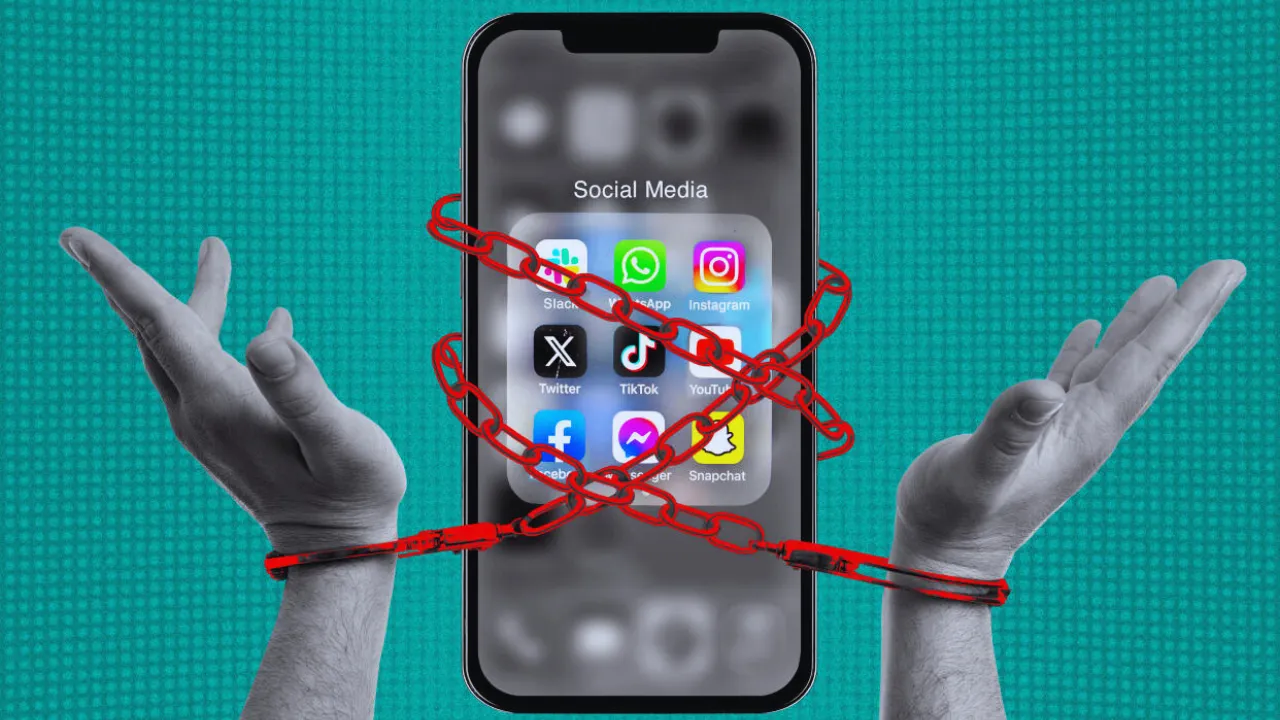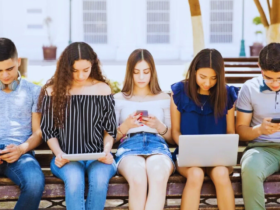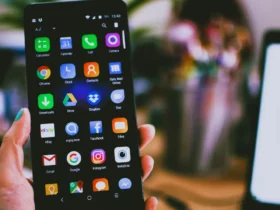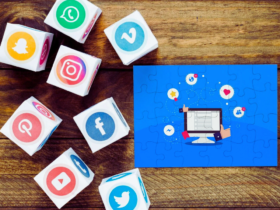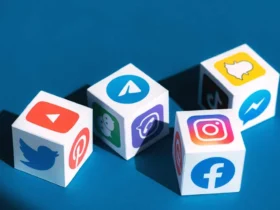With platforms like Facebook, Instagram, Twitter, TikTok, and Snapchat, millions of people around the world connect, share, and consume content. However, the widespread use of these platforms has raised concerns regarding their effects on individuals’ mental health, relationships, and productivity. Social media addiction is a growing phenomenon, and its impact on daily life is significant. This essay will delve into the causes of social media addiction, its effects on daily life, and possible ways to mitigate its negative consequences.
Social media addiction, characterized by excessive and compulsive use of social media platforms, can take a severe toll on individuals. It can affect various aspects of one’s life, from relationships and social interactions to work performance and mental health. Understanding the negative and positive impacts of social media on daily life is crucial to addressing this issue.
What is Social Media Addiction?
Social media addiction refers to the compulsive use of social media platforms, where individuals often prioritize virtual interactions over face-to-face communication. This addiction manifests in various ways, such as constantly checking notifications, spending excessive hours online, and feeling anxious or distressed when unable to access social media. The addictiveness of these platforms is primarily due to their design, which includes features like infinite scrolling, personalized recommendations, and a constant stream of updates.
Addiction to social media can be compared to other forms of behavioral addiction. Just like gambling or shopping addiction, it often starts harmlessly, with users logging into platforms to connect with friends or to find entertainment. However, over time, this behavior becomes compulsive, leading to negative consequences in daily life.
Positive and Negative Effects of Social Media
Social media has both beneficial and harmful effects on users’ lives. On the positive side, it enhances communication, provides access to information, and supports creativity and business growth. However, excessive use can lead to mental health issues, reduced productivity, and weakened real-life relationships.
| Positive Effects | Negative Effects |
| Helps connect people across the world. | Can lead to decreased face-to-face interaction. |
| Provides a platform for self-expression. | It could exacerbate feelings of isolation or loneliness. |
| It can be a valuable source of information. | Increases the risk of cyberbullying and online harassment. |
| Supports businesses and marketing efforts. | It can cause distraction and reduce productivity. |
| Offers a space for social support groups. | Anxiety and depression may result from its detrimental effects on mental health. |
Causes of Social Media Addiction
Social media addiction essay is often fueled by psychological triggers like fear of missing out (FOMO), emotional needs such as validation and loneliness, and environmental factors including constant digital connectivity. Dopamine-driven reward systems reinforce usage, making it hard to disconnect. Peer pressure and algorithm-driven content loops also play a role. Addressing these causes can improve digital well-being.
Psychological Factors
Features like “likes,” comments, and notifications trigger the release of dopamine, the brain’s “feel-good” chemical. Over time, users become dependent on these platforms to maintain their emotional well-being.
Social Influence
Social pressure and the fear of missing out (FOMO) are also significant contributors to social media addiction. People often feel the need to stay connected, not wanting to miss out on social trends, updates, or news. As a result, they find themselves spending more time on social media to stay in the loop.
Personal Factors
People who are already dealing with issues like low self-esteem, loneliness, or anxiety may turn to social media as a coping mechanism. Social media platforms offer a false sense of connection and validation, which can make them more addictive for individuals seeking social approval or emotional support.
Impact on Mental Health
The impact of social media addiction on mental health is increasingly alarming, as excessive usage is linked to anxiety, depression, and low self-esteem. Overuse of social media also disrupts sleep and increases feelings of loneliness. Addressing these effects is crucial for maintaining balanced mental well-being in the digital age.
Anxiety and Depression
Constant comparisons to others, seeing curated highlights of people’s lives, and receiving negative feedback on posts can negatively impact self-esteem. Over time, this can lead to feelings of loneliness, anxiety, and depression.
Sleep Disruption
Social media addiction is also linked to poor sleep hygiene. Furthermore, the constant engagement with social media, particularly late at night, can cause sleep disturbances and lead to fatigue and reduced cognitive performance the next day.
Social Media and Relationships
Social media addiction can strain both romantic and family relationships by reducing the quality of in-person interactions. Constant scrolling or checking notifications may cause partners or family members to feel ignored or undervalued. This digital distraction often leads to misunderstandings, jealousy, or emotional distance. Building healthy boundaries around social media use is key to maintaining strong, real-life connections.
Romantic Relationships
Constantly checking social media while in a relationship can lead to feelings of neglect or jealousy. Partners may feel overlooked or undervalued when the attention is diverted to online interactions. Furthermore, the temptation to engage with others on social media can result in emotional or even physical infidelity.
Family Dynamics
In families, excessive screen time can interfere with family bonding time. Parents may find it difficult to engage with their children when they are constantly on their devices, leading to strained relationships. Children, in turn, may adopt the same behaviors, prioritizing virtual interactions over real-life connections.
Impact on Academic and Work Life
Social media addiction often leads to decreased concentration, making it harder to complete assignments or meet work deadlines. Students may procrastinate studying, while employees might lose valuable time browsing instead of focusing on tasks. This habit can result in lower grades, missed opportunities, and reduced job performance. Developing time management skills and minimizing distractions are essential for staying productive.
Academic Performance
For students, the allure of social media can be hard to resist, especially when assignments or studying require long periods of focus. The constant urge to check social media can cause procrastination and hinder the completion of academic tasks. Over time, this can negatively affect grades and overall academic performance.
Workplace Productivity
Employees may spend time on social media during work hours, reducing their focus on tasks and deadlines. This can ultimately affect their job performance and even their career advancement.
How to Manage Social Media Addiction
Managing social media addiction requires self-discipline and mindful usage habits. Start by setting clear boundaries, such as limiting usage time and disabling unnecessary notifications. In more severe cases, seeking guidance from a mental health professional may be necessary.
Set Time Limits
One effective way to manage social media use is by setting specific time limits for each session. Many social media platforms have built-in features that allow users to set limits on how much time they can spend on the platform each day. You can also use third-party apps to track and limit screen time.
Turn Off Notifications
Disabling notifications can help reduce the constant pull to check social media. By removing these distractions, users can focus on their daily tasks and only check social media at scheduled times.
Engage in Offline Activities
To reduce dependence on social media, it’s important to engage in offline activities, such as exercising, reading, or spending time with family and friends. These activities can provide the same emotional rewards that social media offers without the negative effects.
Seek Professional Help
Social media addiction essay, Seeking professional help is vital for managing social media addiction effectively. Therapists and counselors offer guidance to uncover deeper issues like anxiety, depression, or low self-worth that fuel excessive use. Personalized therapy plans and behavioral strategies support healthier habits. Mental health experts also help build self-control and emotional resilience. Early intervention leads to long-term digital balance.
Wrapping Up
Its impact on daily life, ranging from mental health issues to strained relationships and decreased productivity, is undeniable. However, by understanding the causes and effects of social media addiction, individuals can take proactive steps to manage their usage and minimize its negative consequences. Balancing social media use with offline activities and seeking professional help when needed can help individuals reclaim control over their lives and improve their overall well-being.
FAQs
How can I determine whether I have a social media addiction?
Social media addiction essay, If you find yourself spending hours on social media every day, unable to focus on other tasks, or feeling anxious when you don’t check your social media, you might be addicted. Other signs include neglecting real-life relationships, experiencing emotional distress when not using social media, and losing track of time while online. Addiction can also manifest as a constant urge to check your phone for updates, even when doing other activities.
Can mental health problems result from an addiction to social media?
Social media addiction can contribute to mental health issues such as anxiety, depression, and stress. The constant comparison to others and the pressure to maintain a perfect online image can negatively affect self-esteem and cause emotional distress. Additionally, the disruption of sleep patterns due to late-night social media use can further exacerbate mental health issues.
How does social media addiction affect relationships?
Social media addiction can create distance in romantic and familial relationships. Partners may feel neglected when one person prioritizes online interactions over real-life communication. Similarly, excessive use of social media by parents can lead to less family bonding time, while children may model this behavior. Constant online distractions can also lead to jealousy, trust issues, and emotional infidelity in romantic relationships.
What are the effects of social media addiction on academic performance?
Social media addiction can significantly reduce focus and productivity, leading to procrastination and poor academic performance. Students may find themselves spending more time on social media than on studying or completing assignments. This distraction can lead to lower grades and a lack of preparation for exams, which can affect long-term academic success.
How can I reduce my social media usage?
Social media addiction essay, You can reduce your social media usage by setting specific time limits for each session, turning off notifications, and engaging in offline activities such as reading, exercising, or spending time with family. Tracking your screen time and making a conscious effort to prioritize real-life interactions over virtual ones can also help reduce your dependence on social media.
Does using social media have any advantages?
While social media addiction can have negative consequences, there are also positive effects. Social media allows people to stay connected with friends and family, regardless of location, and can provide a platform for self-expression and creativity. It also offers educational content, support communities, and opportunities for networking and career advancement.
Can social media addiction be treated?
Social media addiction can be treated through a combination of self-awareness, behavioral changes, and professional help. Setting time limits, turning off notifications, and engaging in offline activities can reduce reliance on social media. In severe cases, therapy and counseling may be necessary to address underlying emotional or psychological issues contributing to the addiction.
